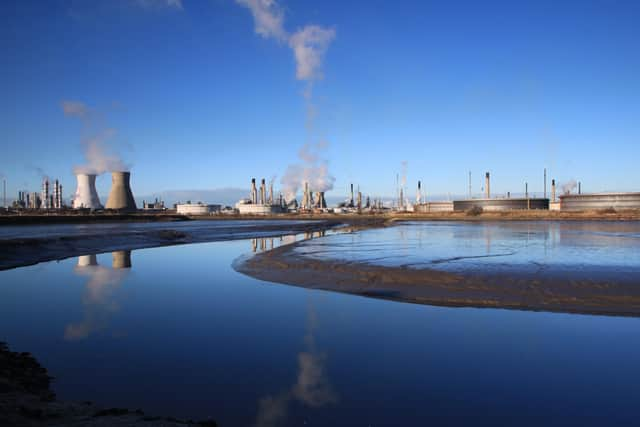Switch from natural gas to hydrogen for home heating will push more families into fuel poverty, expert warns
Tom Baxter, a visiting professor at Strathclyde University and former lecturer at the University of Aberdeen with 40 years experience of working in the oil and gas industry, says the public is being “duped” by government and industry plans to switch to hydrogen.
He says the move will be “a dripping roast for taxpayers’ money”.
Advertisement
Hide AdAdvertisement
Hide AdHydrogen is seen as an environmentally friendly alternative to natural gas because it produces only water when burned.
However, its carbon footprint varies depending on how it is produced.
It can be made through electrolysis of water, but whether it is graded ‘green’, ‘blue’ or other colours depends on the energy source used to create it.
Green hydrogen is considered clean, with the process powered by renewable energy such as wind power, but blue is made using fossil fuels, and so has a bigger environmental impact.


It also takes around 30 per cent more natural gas to produce the equivalent blue hydrogen than if the gas was used directly.
Both the Scottish and UK governments are proposing a ‘twin track’ move towards hydrogen, with blue being used in conjunction with carbon capture technology to speed the transition to green.
But Mr Baxter is concerned that the price of hydrogen on household bills could be double the cost of natural gas, based on projections set out by the UK government in a report pubished last year.
“There’s so much hype in there, so much seduction, without the evidence,” he said.


Advertisement
Hide AdAdvertisement
Hide Ad“Hydrogen is the most abundant element in the world, it burns to water – what’s not to like?
“But when you start unravelling it all, there is lots not to like.
“And what is good for big businesses is not necessarily good for consumers.
“I believe we all have a right to know what this is going to cost us.”
The UK government acknowledged that a move to 100 per cent blue hydrogen for domestic heating now, amid record high global gas prices, would impact household bills.
But they said a decision on hydrogen use for home heating was unlikely before 2026 and changes “wouldn't happen overnight”.
“Home-grown hydrogen production will play a vital role in reducing our reliance on expensive fossil fuels by providing clean, secure energy for British industry, power generation, transport,” a spokesperson said.
“In the meantime, we are working with industry, regulators and local partners on projects that will trial the use of low-carbon hydrogen as an alternative to expensive gas in heating buildings.”
Advertisement
Hide AdAdvertisement
Hide AdThe Scottish Government said it is “fully committed to helping the hydrogen sector develop and grow”.
Investments of £100 million have been awarded to renewable hydrogen projects over the current parliament, pluss £15 million towards a hydrogen hub in Aberdeen.
A spokesperson said: “Both renewable and low-carbon hydrogen will play an increasingly important role in Scotland’s energy transition.
“Our priorities are to get as much renewable hydrogen into the energy system as quickly as possible while supporting the establishment of low-carbon hydrogen production at scale in the 2020s, linked to carbon capture and storage.”
Comments
Want to join the conversation? Please or to comment on this article.
